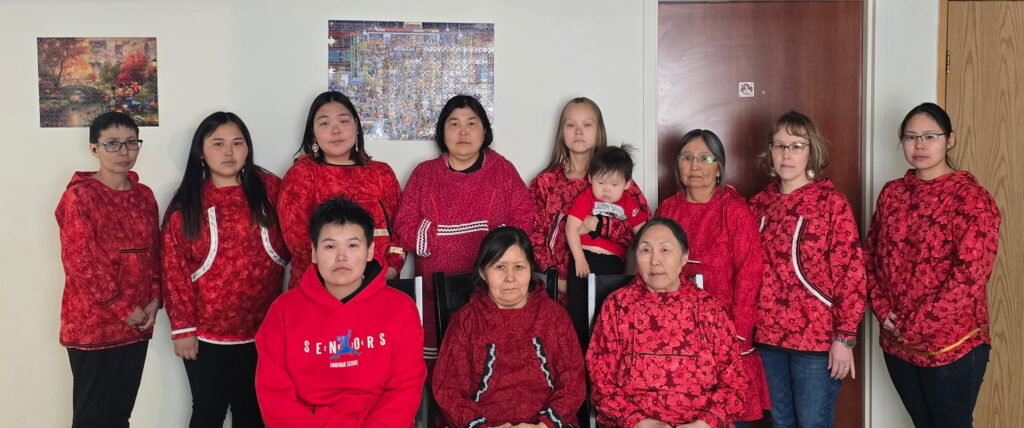History of the Emmonak Women’s Shelter

At a glance: Emmonak Women’s Shelter
- Founded in 1979; first shelter established in 1984
- Service area: 13 villages, and 18 Tribes in the Lower Yukon Delta, Alaska (Also known as the Kusilvak Region)
- Population: More than 800 people reside in Emmonak
- Source of funding: Federal, State, Tribal
Contact: Joann Horn, Director
Our Mission & Program Description
Mission Statement:
“Emmonak Women’s Shelter was founded upon the establishment for the purpose of providing emergency shelter and assistance to victims of domestic violence and sexual assault. The Board and staff serve to enable alternatives to physically dangerous situations and to encourage self-reliance, and sense of personal worth & dignity. We’re committed to developing culturally relevant prevention education and counseling to villages and Emmonak Residents that we serve. We are further committed to the recruitment, hiring and training of local Yupik speaking persons to all aspects of the shelter operations.”
Emmonak Women’s Shelter (EWS), a nonprofit organization in the Yup’ik Eskimo village of Emmonak, faces unique challenges in providing comprehensive services to victims of violence. Located approximately 200 miles northwest of Bethel, Alaska, at the mouth of the Yukon River, EWS serves a population of 2,977 people spread over an approximate area of 6,000 square miles. Travel to and from Bethel, the regional “hub,” and between villages is by air or water; this part of Alaska has no roads. Victims are often flown in from other remote villages to receive services from EWS. The population in this area is 90- to 95-percent Alaska Native, primarily Yup’ik Eskimo.
Established in 1984, EWS provides a wide range of services to victims of crime, including immediate safety (shelter), crisis intervention, children’s services, education and support to victims of domestic violence and/or sexual assault, and court accompaniment. EWS also provides comprehensive education and support services for local communities, schools, Tribal Councils, city governments, and other human services providers. With the help of a Children’s Justice Act grant, EWS expanded its services to include specific advocacy and programming for child victims and children of adult victims. The Children’s Services Coordinator (Children’s Advocate) and Rural Outreach Coordinator, Resource Advocate Coordinator and Resource Advocates works full time to provide community education and outreach to develop and improve the responses of state and tribal systems to child victims and witnesses of violence. EWS is closely connected to the village government and has the support of community leaders and elders.
Safety and Comfort
Although EWS offers a 24 hour crisis line and 24- hour access to its shelter, victims of violence in rural Alaska face unique barriers when seeking safety and receiving services. During the long winter months, for example, the high winds and cold weather can impede air travel and make any form of travel dangerous. A woman and her children seeking safety may face temperatures as low as 25 degrees below zero. As she flees a dangerous situation at home, she may be taking dangerous risks with the weather. Upon arriving at EWS, victims of crime will find more than comfort and safety. The shelter is a building provided by the village government, and it is designed and decorated to look and feel like a Yup’ik home. The shelter includes three bedrooms, a children’s playroom filled with toys and books, and a common kitchen and living room area. Thanks to increased funding in recent years, the shelter is now staffed 24 hours a day.
Native victims from as far away as Anchorage call EWS because they want to talk to someone who understands their language, culture, and community. Not everyone who calls the crisis line needs immediate shelter, but the employees receive positive feedback from the victims who call to learn about their options and to hear a friendly voice. EWS serves the village of Emmonak in many ways, including sponsoring and coordinating community education and awareness events about child abuse, domestic violence, and sexual abuse such as the Peace Walk and the Candlelight Vigil. Using both the regional radio station and the village station, EWS provides public service announcements about domestic violence, sexual abuse, child sexual abuse, and neglect. EWS also sponsors activities for mothers and children as well as community events to promote healthy family activities.
Cultural Relevance
EWS is one of two shelters in Alaska that is in a village setting; which are completely Native operated and -managed facilities that serves victims. Because many EWS staff are Yup’ik speaking Native women who are active in their communities, have families of their own, and understand the regional issues, the services of EWS are in high demand. Victims can receive counseling and support in their own language, and the shelter provides all services compatible with the Yup’ik philosophical context. EWS also provides shelter for residents with opportunities to participate in Yup’ik cultural activities and to prepare Native foods. Staff members report that victims appreciate these Native-based approaches to victim services and that their programs have developed a statewide reputation for sensitivity to rural Native women. Most Native residents of Emmonak are Catholic, and the local church has a close relationship with the shelter. The church provides support and resources to shelter residents. The combination of traditional Yup’ik cultural traditions with local community, faith-based services enables victims to receive a full spectrum of spiritual guidance and support.
Emmonak Women’s Shelter P.O. Box 207 Emmonak, AK 99581 Phone: 907–949–1443 Fax: 907–949–1718 E-mail: joann_ews@yahoo.com, travis_ews@yahoo.com, or tlong.ews@gmail.com